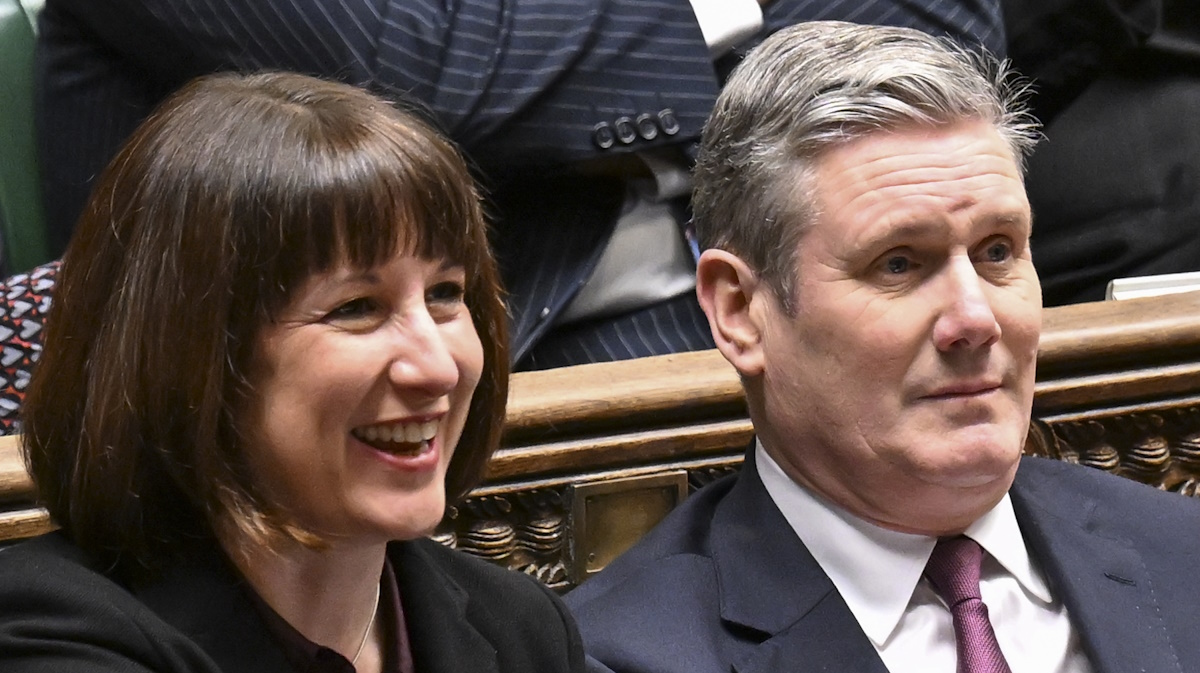Yesterday Ian Corfield, the Labour donor whom Rachel Reeves parachuted into a senior role at the Treasury, resigned. He will now become “an adviser by ministerial appointment” – although this title seems to be something of a professional fiction, as the Times reports that Reeves (the minister) “is said to have played a minimal role in the process”.
Will that be enough to kill the story? One suspects not. Henry Newman, who has been leading the charge on the appointments story, has continued to press the attack over whether or not the Chancellor breached the Ministerial Code. (He offered ConHome readers chapter and verse in his first new monthly column on Friday.)
Corfield’s resignation deals with the question of his having a problematic position, but not that of how he came to get it in the first place – in particular, the apparent failure to declare his previous donations to Labour and to Reeves. Both the Civil Service Commission and James Bowler, the permanent secretary at the Treasury, reportedly claim to have known nothing of it.
It is thus, potentially, a dangerous move for Reeves: one which validates her critics without resolving the problem.
Yet it isn’t obvious the Party as a whole grasps that. Responding to the story of Corfield’s resignation, Andrew Griffith highlighted another, more egregiously dodgy appointment (Emily Middleton as a director general at the Department for Science, Innovation, and Technology) with the words “now sort that!” – implying that the Corfield situation has been sorted.
A small slip, perhaps, but potentially an important one. For whilst the past couple of weeks have undoubtedly been a satisfying rejoinder to all that tedious commentary about having the grown-ups back in charge, the appointments saga is also a crucial test for the Conservative Party – specifically, whether or not it remembers how to do opposition.
The early auguries aren’t promising. Without taking anything away from his work, it is remarkable that it has been Newman, and not the staffed and resourced Party itself, taking the lead on this story.
Whilst there have been intermittent interventions from individual MPs (Griffith has been one of the better ones), there is clearly no whole-Party strategy. Even Jeremy Hunt, who staged a shock revival in our Shadow Cabinet League Table for the gusto with which he has taken the fight to Reeves on taxation and public spending, has yet to properly grip the issue.
Considering the endless shroud-waving that accompanied the Tories’ fitful efforts to take a pro-active approach to public appointments over the past decade or so, they ought to need no encouragement to get stuck in to this particular battle. And yet.
This may in part be down to the fact that Parliament is in recess, denying the Opposition the usual theatrical props of parliamentary procedure. Then there’s the fact that we are, what, a third of the way through this extremely long leadership contest? The candidates have other battles to fight, and the Shadow Cabinet pro tempore may be wary of the spotlight.
But opposition is the Opposition’s job, and it is not an easy one. The Government sets the agenda, controls the levers of policy and public spending, and attracts media attention by default. Even a very effective opposition can seldom force something onto the agenda on its own initiative; the art is waiting for the Government to misstep, and then exploiting that to the fullest.
At present, there seems a real risk of the Conservatives ending up with what one former advisor described to me as “the worst of both worlds”.
By approaching the problem as one of politicisation per se, rather than focusing on the much more fertile question of donations, declarations, and conflicts of interest, they risk simultaneously giving Labour a relatively easy way to earth the appointments story and make it even harder to install their own people in key positions when (if?) the Tories return to office.
This is especially egregious in the case of Reeves. Yes, the Tories should definitely press the attack on other appointments (and they just keep coming). But the Chancellor is at least the second most important person in the current government, and has additionally made herself an especially legitimate target for attacks on proprietary grounds because, per Newman, she has previously struck a very pious tone indeed about the Ministerial Code.
What this story presents the Conservatives is a chance to keep Reeves badly off-balance, perhaps worse, throughout the run-up to what she is clearly expecting to be a very unpopular budget – a budget which in turn will likely define the first year, if not much more, of the Starmer Government.
Out of office, pressing such attacks is their entire job. The Official Opposition exists, and is resourced, to hold the government of the day to account. Failure to do so would be a dereliction of duty, and being on holiday (or more focused on an internal election) is no excuse.
